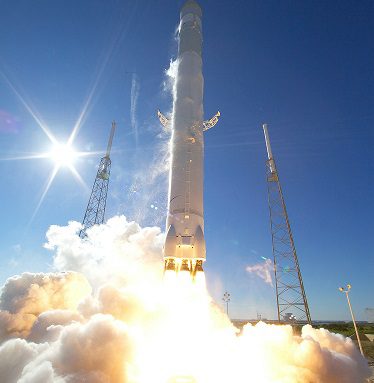
Falling from Outer Space
May 10, 2021
If you have skimmed the headlines over the last several months, you have likely seen Tesla Motor’s co-founder, Elon Musk, mentioned in the context of outer space. Musk owns the rapidly growing company SpaceX, along with many other technology companies. Recently, articles about Musk’s many businesses seem less frequent than those relating to his activities of more “cultural” significance. Whether his errant tweets landing him in hot water with the SEC; his involvement in the hype around “Dogecoin”- the cryptocurrency created as a joke; or his appearance on Saturday Night Live this past weekend, the media seem unable to take their eyes off the eccentric entrepreneur.
Last week there was one outer space story that grabbed my attention without the help of Elon Musk. The WSJ headline “Chinese Rocket Debris Expected to Tumble into Earth’s Atmosphere This Weekend” quickly grabbed my attention all on its own. This story covered the attempted launch of a section of China’s new space station and the miscalculations (or neglect) which led to the uncontrolled descent of one of their rockets back to Earth.
Thankfully, the rocket called “Long March-5B,” which was nearly the height of a 10-story building broke up and crashed harmlessly into the Indian Ocean. While the crash avoided any human casualties or damage to property, the outcome was unknown until shortly before impact. The rocket had spun out of control as it circled Earth around 15 times a day at a speed of nearly 17,000 miles per hour. At that speed, it was almost impossible to predict where the rocket might land. The best estimate that could be provided by US expert Dr. Jonathan McDowell, from the Harvard-Smithsonian Center for Astrophysics, was “anywhere between 41.5 degrees north, and 41.5 degrees south”. To put it in terms I can understand, that meant anywhere around the circumference of the globe as far north as New York or as far south as the southern coast of Australia.
Musk typically steals the spotlight with his company SpaceX’s mesmerizing ability to land rockets upright. However, this recent story of Chinese space exploration reminded me of the many others who are trying to follow in his footsteps. It seems these efforts often “fly under the radar” until, of course, they crash land. Since 2018, China has sent more rockets into space than any other country and has swiftly risen to the number two spender on space programs behind the United States. After completing their space station, they aim to build the first permanent lunar base by 2036 through a partnership with the Russian space program.
While it is easy to become captivated by the technological developments here at home, the scare this past week has served as a reminder that the revival of the space race is a global phenomenon, and our competitors may be (literally) throwing caution to the wind in order to win.
Corey Erdoes

